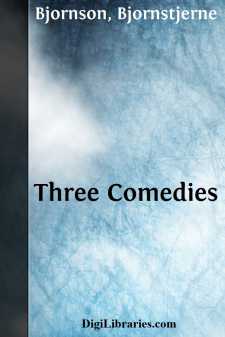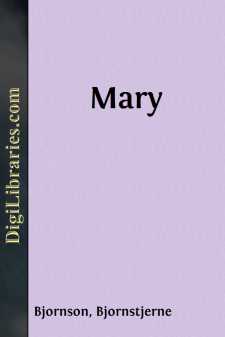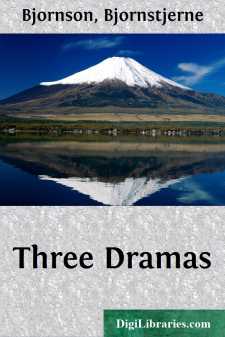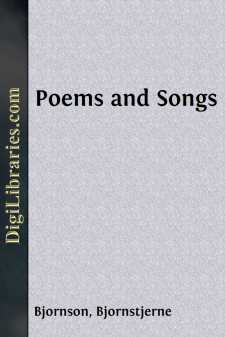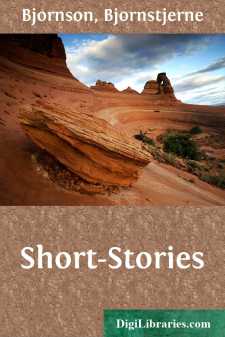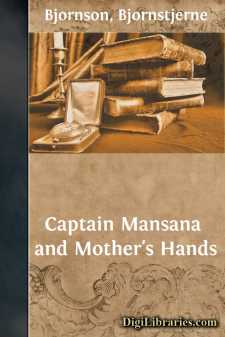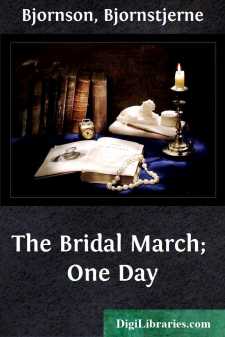Categories
- Antiques & Collectibles 13
- Architecture 36
- Art 48
- Bibles 22
- Biography & Autobiography 813
- Body, Mind & Spirit 142
- Business & Economics 28
- Children's Books 17
- Children's Fiction 14
- Computers 4
- Cooking 94
- Crafts & Hobbies 4
- Drama 346
- Education 46
- Family & Relationships 57
- Fiction 11829
- Games 19
- Gardening 17
- Health & Fitness 34
- History 1377
- House & Home 1
- Humor 147
- Juvenile Fiction 1873
- Juvenile Nonfiction 202
- Language Arts & Disciplines 88
- Law 16
- Literary Collections 686
- Literary Criticism 179
- Mathematics 13
- Medical 41
- Music 40
- Nature 179
- Non-Classifiable 1768
- Performing Arts 7
- Periodicals 1453
- Philosophy 64
- Photography 2
- Poetry 896
- Political Science 203
- Psychology 42
- Reference 154
- Religion 513
- Science 126
- Self-Help 84
- Social Science 81
- Sports & Recreation 34
- Study Aids 3
- Technology & Engineering 59
- Transportation 23
- Travel 463
- True Crime 29
Bjornstjerne Bjornson
Bjornstjerne Bjornson (1832–1910) was a renowned Norwegian writer, poet, and playwright, who was a leading figure in the cultural life of Norway in the 19th century. He was awarded the Nobel Prize in Literature in 1903 for his versatile and influential literary work. Bjornson is also celebrated for writing the lyrics to the Norwegian national anthem, "Ja, vi elsker dette landet."
Author's Books:
Sort by:
ACT I (SCENE.—A handsomely furnished, carpeted room, with a door at the back leading to a lobby. The FATHER is sitting on a couch on the left-hand side, in the foreground, reading a newspaper. Other papers are lying on a small table in front of him. AXEL is on another couch drawn up in a similar position on the right-hand side. A newspaper, which he is not reading, is lying on his knee. The MOTHER is...
more...
THE HOMESTEAD AND THE RACE The coast line of the south of Norway is very irregular. This is the work of the mountains and rivers. The former end in hillocks and headlands, off which often lie islands; the latter have dug out valleys and end in fjords or smaller inlets. In one of these inlets, known as "Kroken" (the nook), lies the homestead. The original name of the place was Krokskogen. In the...
more...
INTRODUCTION The three plays here presented were the outcome of a period when Björnson's views on many topics were undergoing a drastic revision and he was abandoning much of his previous orthodoxy in many directions. Two of them were written during, and one immediately after, a three years' absence from Norway—years spent almost entirely in southern Europe. [Note: Further details...
more...
INTRODUCTION BJÖRNSON AS A LYRIC POET I lived far more than e'er I sang;Thought, ire, and mirth unceasing rang Around me, where I guested;To be where loud life's battles callFor me was well-nigh more than all My pen on page arrested. What's true and strong has growing-room,And will perhaps eternal bloom, Without black ink's salvation,And he will be, who least it...
more...
THE FATHER[1] By Björnstjerne Björnson (1838-1910) The man whose story is here to be told was the wealthiest and most influential person in his parish; his name was Thord Överaas. He appeared in the priest's study one day, tall and earnest. "I have gotten a son," said he, "and I wish to present him for baptism." "What shall his name be?" "Finn,—after my...
more...
CAPTAIN MANSANA CHAPTER I I was on my way to Rome, and as I entered the train at Bologna, I bought some newspapers to read on my journey. An item of news from the capital, published in one of the Florence journals, immediately arrested my attention. It carried me back thirteen years, and brought to mind a former visit I had paid to Rome, and certain friends with whom I had lived in a little town in the...
more...
THE BRIDAL MARCH There lived last century, in one of the high-lying inland valleys of Norway, a fiddler, who has become in some degree a legendary personage. Of the tunes and marches ascribed to him, some are said to have been inspired by the Trolls, one he heard from the devil himself, another he made to save his life, &c., &c. But the most famous of all is a Bridal March; and its story does...
more...


